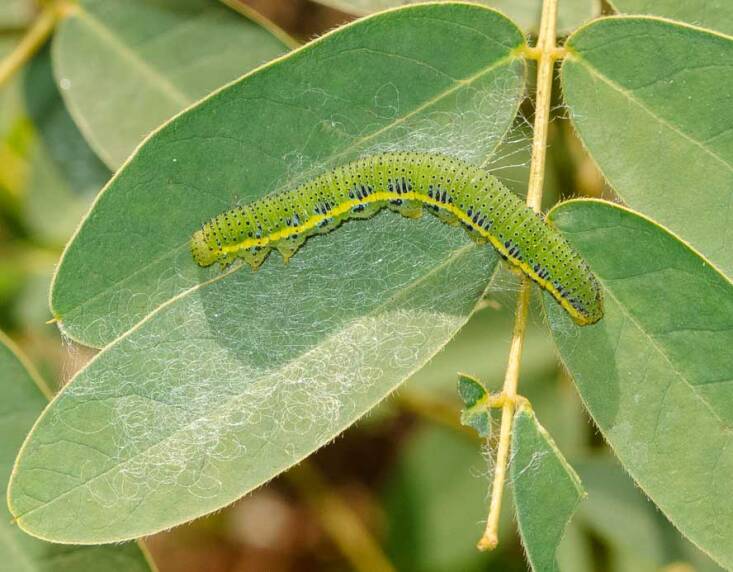A current research of declining butterfly populations printed in the journal Science made headlines throughout the nation when it got here out in March. The New York Occasions even launched an interactive instrument so readers may see how butterflies had been impacted of their particular space. Within the summary of their findings the scientists concluded that “the prevalence of declines all through all areas in the US highlights an pressing want to guard butterflies from additional losses.” So, what’s a gardener to do?
Plant caterpillar meals, says Mary Anne Borge, the editor of Butterfly Gardener, a publication put out by the North American Butterfly Affiliation for its members. When gardeners take into consideration supporting butterflies, “we all the time take into consideration offering nectar for butterflies for the grownup butterflies,” says Borge. “And we consider different critters that may munch on the leaves of crops as pests. However butterflies should not butterflies by their complete lifecycle. They’re caterpillars first. So when you actually wish to assist butterflies, you actually need to supply not simply nectar for the adults, however you even have to supply meals for the caterpillars.”
And it seems, caterpillars are additionally very specific about what they’ll eat.

Butterflies strategically lay their eggs on specific crops, in order that when their caterpillars hatch they are going to discover themselves on a plant they’ll digest. One of the best recognized instance of this host plant and caterpillar relationship is the milkweed-monarch connection (partially as a result of monarchs are so distinctive they usually have only one host plant), however there are a whole lot of different caterpillar-plant relationships, for instance, the zebra zwallowtail’s solely host plant is the pawpaw tree (Asimina triloba). Some caterpillars like monarchs and zebra xwallowtails can solely eat one plant, whereas others can fortunately feast on a dozen, however caterpillars can hardly ever eat ornamentals imported from overseas.
What you plant to feed your regional caterpillars will, subsequently, depend upon the place you reside. The Nationwide Wildlife Federation has a plant finder instrument the place you possibly can plug in your zip code and seek for butterflies and get an inventory of their host crops you would possibly use in your backyard. However Bolger additionally suggests gardeners keep watch over crops barely exterior of their area, too. “I discovered it very fascinating to truly have a look at the regional information from that report in Science. There’s some fascinating developments that they trace at within the writeup for the research: Butterflies that traditionally have had a fairly first rate inhabitants within the southern United States who are actually growing their numbers within the north,” says Bolder. “The one factor that allows that’s having the caterpillar meals crops that they want.”
















